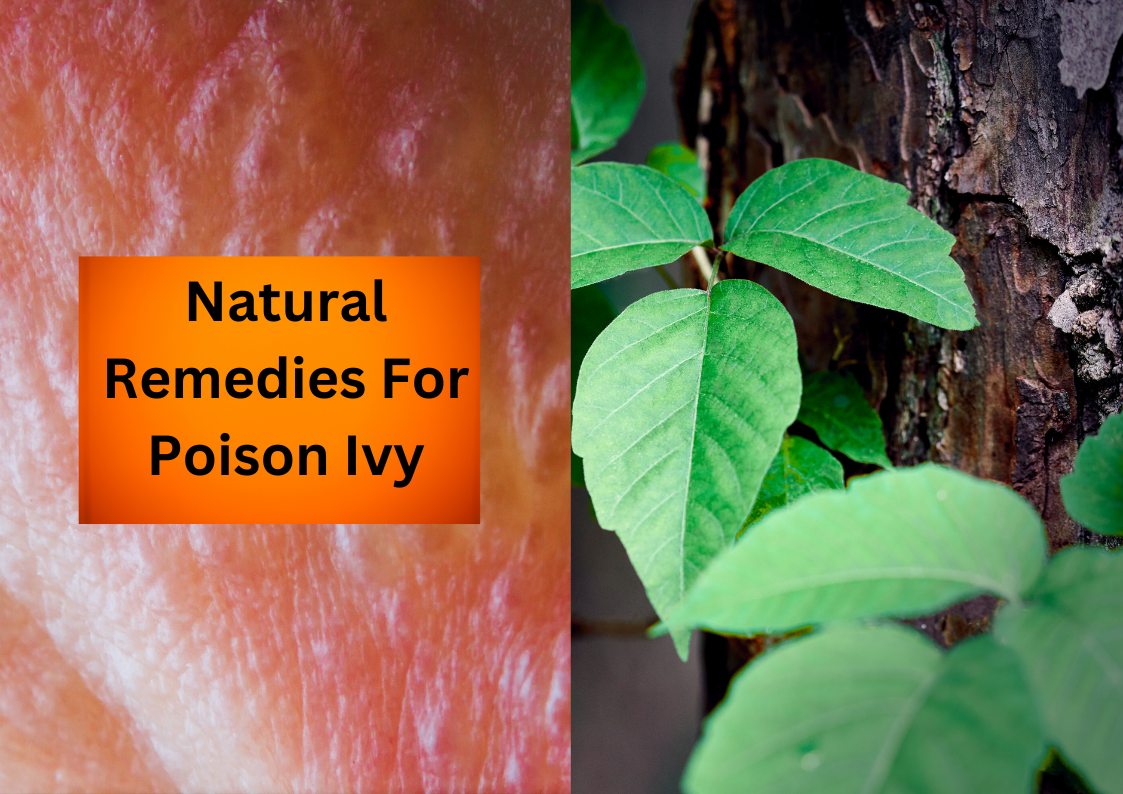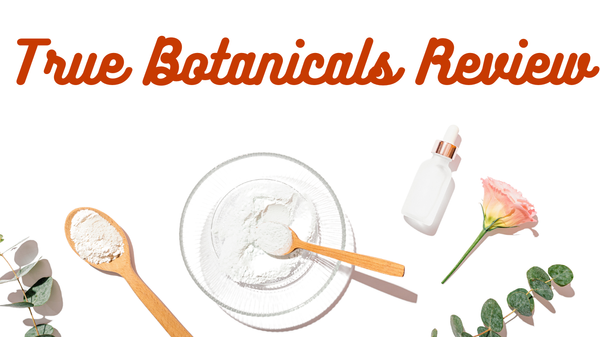Nature's Balm: Soothing the Sting of Poison Ivy with Natural Remedies
Poison ivy's itchy, irritating rash can ruin a perfect day out in nature, bringing discomfort and frustration. Scratching only worsens the condition, making the skin raw and susceptible to infection.

Poison ivy's itchy, irritating rash can ruin a perfect day out in nature, bringing discomfort and frustration. Scratching only worsens the condition, making the skin raw and susceptible to infection. Over-the-counter products often provide temporary relief, but they can also come with a host of side effects. But what if there was a natural remedy for poison ivy? A solution that not only soothes the itch but also accelerates your skin's recovery process. In this article, we look at natural remedies that can help with poison ivy. These remedies are safe and holistic.
What is Poison Ivy?
Many people have allergic reactions to poison ivy, a plant called Toxicodendron radicans. This plant is common in North America. It grows in many places, like wooded areas and parks. The plant contains an oil called urushiol, which when touched, can trigger a reaction resulting in an itchy, blistering rash. Contact dermatitis, a reaction that can happen soon after exposure, can last for a few weeks.
What Does Poison Ivy Look Like?
Poison ivy is characterized by its distinctive tri-leaf arrangement. Each stem typically bears clusters of three leaflets - hence the well-known phrase, "Leaves of three, let it be." The leaves are green in the spring and summer, turning to brilliant shades of red, orange, or yellow in the fall. The plant may have white berries and can present as a bush, a climbing vine, or a ground cover. Its appearance can vary considerably, which can sometimes make it difficult to identify. To avoid touching this plant that irritates the skin, it's important to learn how it looks.
How Can I Benefit From a Natural Home Remedy For Poison Ivy?
Natural home remedies for poison ivy are an ideal option for those seeking safe, cost-effective, and holistic solutions. You can use common household items or plants for these remedies, which are cheaper than store-bought treatments. Furthermore, you can use natural remedies right away after being exposed to reduce symptoms. Because they have fewer synthetic compounds, natural products are safer for people with sensitive skin. Furthermore, these remedies can be used in conjunction with traditional treatments, providing additional relief from itching and discomfort. It is important to understand that natural remedies can be useful. However, they should not take the place of professional medical advice. This is especially true in serious situations.
What Natural Remedy Can I Use For Poison Ivy?
One of the most effective natural remedies for poison ivy rash is aloe vera. Known for its soothing and healing properties, aloe vera can help to reduce itchiness and inflammation associated with the rash. You can apply aloe vera gel directly from the plant or use over-the-counter aloe products. Another natural remedy is apple cider vinegar, which has been credited with alleviating the itchiness and helping to dry out the rash. It should be applied in a diluted form - a few drops of vinegar to a cup of water - to avoid further skin irritation. Oatmeal baths can also provide relief. For many years, people have used oatmeal to calm irritated skin. Adding oatmeal to a warm bath can help relieve itchiness and discomfort caused by a poison ivy rash. Natural remedies are usually safe and work well, but talk to a doctor if your symptoms don't go away or get worse.
How Can Baking Soda Help With Poison Ivy?
Baking soda, a staple in many kitchen cabinets, can serve as another effective natural remedy for poison ivy rash. This household ingredient has anti-inflammatory and antibacterial properties that can help soothe the itchiness and reduce inflammation. To use baking soda, make a paste by mixing three teaspoons of baking soda with one teaspoon of water. Apply the paste to the affected area and let it dry. This can be done a few times a day until symptoms subside. Please be aware that while these remedies may offer relief, they are only temporary measures. Always seek medical attention if the rash spreads, becomes infected, or fails to improve after a week.
Severity of Poison Ivy
Poison ivy can have severe effects on the body, beyond the initial itching and discomfort. In more severe cases, the rash can escalate to blisters filled with fluid that may break open. These blisters can become infected if scratched, leading to possible scarring. Additionally, if the plant's oil, urushiol, is inhaled - often by unwittingly burning the plant - it can cause a dangerous internal reaction. Severe respiratory problems can occur, including difficulty breathing, intense coughing, and chest tightness. In rare cases, a person might have anaphylaxis, a serious allergic reaction that can be deadly. This is rare, but it underscores the potential seriousness of exposure to poison ivy. If any of these severe symptoms occur, seek immediate medical attention.
How Long is Poison Ivy Contagious?
It is a common misconception that poison ivy is contagious. The rash itself is not contagious and cannot be spread from person to person. The rash is caused by urushiol oil, which can be spread by touching the skin, clothing, or objects that touched the plant. Once the oil has been washed off, there is no risk of further spreading. Typically, urushiol can remain active on any surface, including dead plants, for up to 1 to 5 years. It's vital to clean everything that may have come into contact with the plant to prevent re-exposure and further rashes.
To-Do Checklist: If You Get Poison Ivy
- To identify the rash from poison ivy exposure, look for itching, redness, and swelling in streaks or lines.
- After contact, quickly clean your skin by rinsing it with lukewarm, soapy water.
- Wash Everything: Clean all the clothes, shoes, and things you had with you when you were exposed.
- Do Not Scratch: Resist the urge to scratch the rash or blisters. This can lead to infection and scarring.
- To soothe the itch, use creams or lotions with calamine or hydrocortisone that you can buy without a prescription.
- Take antihistamines for severe itching, but be cautious as they can make you drowsy.
- Cold Compresses: Apply cold compresses to the rash to help alleviate itching and burning.
- See a Doctor: If the rash is widespread or results in numerous blisters, or if you experience severe symptoms like difficulty breathing or swallowing, seek medical attention immediately.
Remember, the best form of protection is prevention. Learn to identify poison ivy and try your best to avoid coming into contact with it. If you want to learn about natural remedies for common conditions, check out The Wellness Ledger's blog post on pink eye. It provides a wealth of information on various natural treatments that you might find helpful.
Key Takeaways
- Poison ivy exposure leads to symptoms like itching, redness, and swelling, usually appearing in a streak or line pattern.
- Quick and thorough cleansing of the skin and items that came into contact with the plant can minimize the severity of the reaction.
- It's essential to avoid scratching the affected area to prevent secondary infection and scarring.
- Over-the-counter treatments like creams containing calamine or hydrocortisone, oral antihistamines, and cold compresses can alleviate symptoms.
- If the reaction is severe, seeking immediate professional medical attention is crucial.
- Prevention, through the identification and avoidance of poison ivy, is the best approach.
In conclusion, the discomfort caused by poison ivy can be mitigated with timely and appropriate measures. The Wellness Ledger is committed to empowering its readers with useful knowledge to enhance their lifestyles. Our goal is to provide you with reliable, accessible information on a wide range of health-related topics, including natural remedies and preventive care. We believe that informed choices lead to healthier, happier lives. We encourage you to explore our other articles for more insightful tips and expert advice. Remember, an ounce of prevention is worth a pound of cure, so stay informed and stay healthy with The Wellness Ledger.






